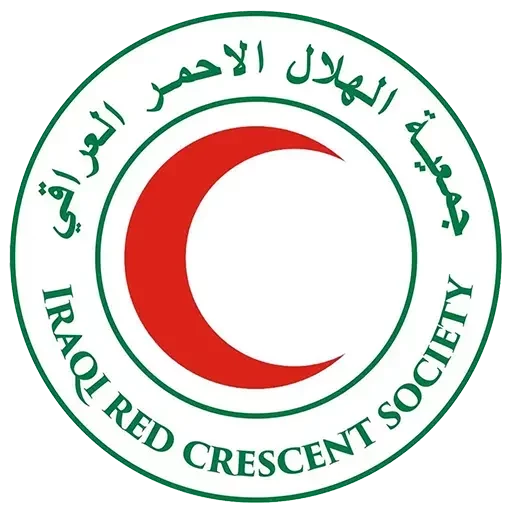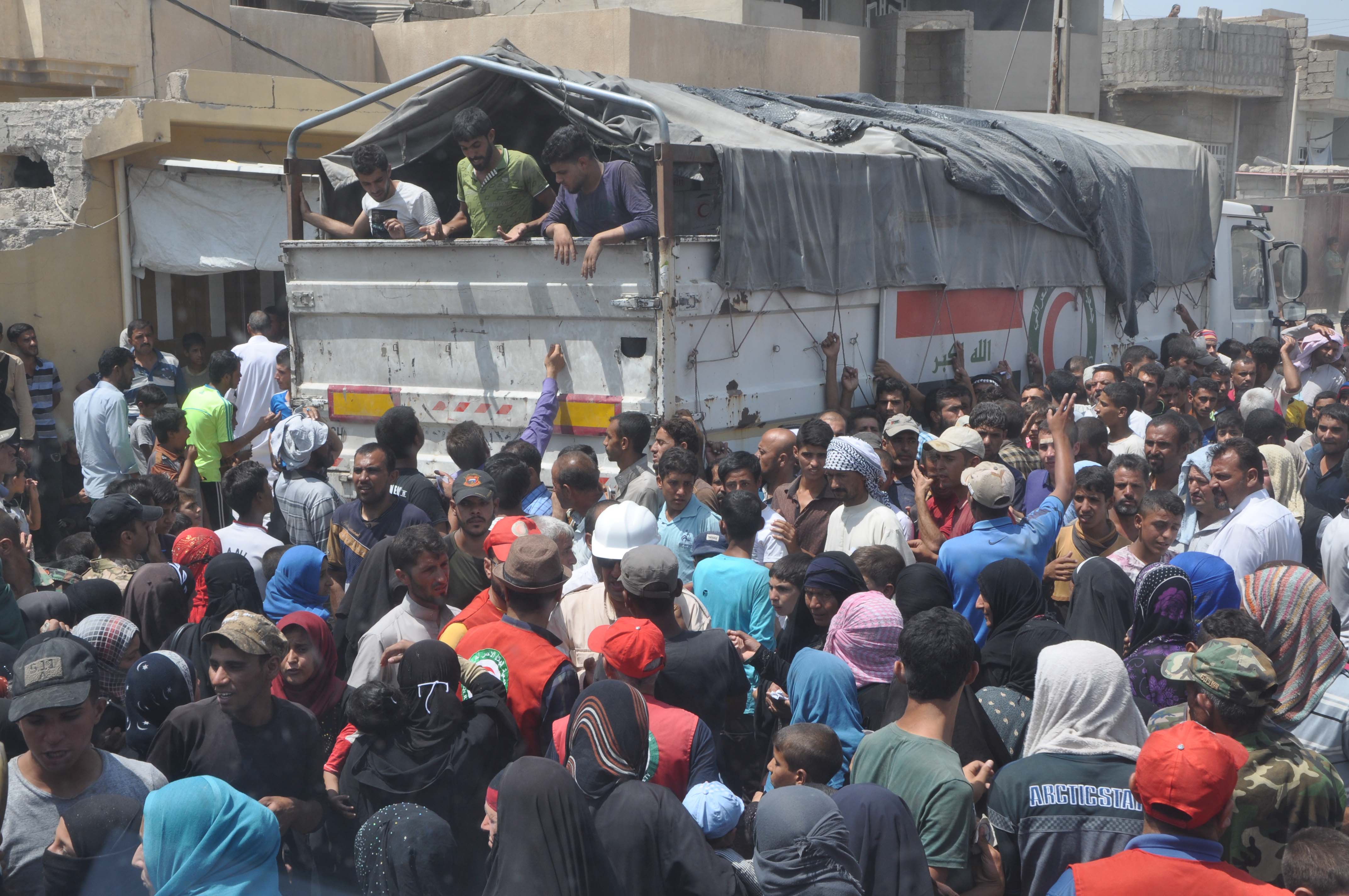More than eight months passed of the crisis Iraqi Red Crescent volunteers are still facing humanitarian challenges in Mosul
since the beginning of operations in Nineveh governorate in October 2016, statistics of the Iraqi Red Crescent Society teams have indicated that (97) thousand citizens of the local population of the city of Mosul and a number of its towns have displaced, while more than (32) thousands of them have returned to their areas in the past few days, and others are still deployed on a number of camps that were set up at the beginning of the crisis, including camps of (Hassan Sham, Al-Khazer , Jamah Kour , Al-Jadah , Hamam Al-Aalil , Haj Ali,camp in the left side of Mosul ,alnarkazelya and displaced receiving centers). The displaced people are expected to return to their areas in the coming days after the clearance of their areas of remnants of the fighting where local authorities are facing significant obstacles to clear the neighbourhoods of Mosul from the war remnants and mines.

Over the past eight months, the Iraqi Red Crescent Society, supported by its partners in the International Red Cross Movement, has taken responsibility of being the first responder to the needs of displaced people and affected in Nineveh governorate and its centre, Mosul.
” during the previous period, IRCS teams have taken responsibility for helping the displaced people in the camps and providing necessary assistance to relief and shelter them adding to help them on the health side, as well as providing food, water, and other things,” Yassin Ahmed Abbas, the President of the Iraqi Red Crescent Society, has said.
Dr.Yassen has added that “the IRCS has worked in two directions, the first is the relief of the displaced and the second is to help the families that have remained inside the city despite the fierce fighting that took place, and IRCS has the largest role in providing food, water and other humanitarian assistance to these families”.
The number of families that IRCS teams have assisted during this period reached more than 1,036,122 citizens, 566849 of them displaced in the camps and more than 469,273 residents of the city of Mosul.
The relief work of IRCS is based on the distribution of hot and dry meals prepared by the volunteers in the camps by opening mobile kitchens and installing ovens to distribute bread to the displaced.

Haider Qasim, Relief Teams Official in the south of Mosul, has said “The conditions of displacement from the city of Mosul have forced the IRCS to diversify its assistance to suit the size of the needs, thus IRCS has worked to open bread ovens and mobile kitchens to meet the needs of displaced people. During the last months, IRCS field teams have distributed (1,350,000) a hot meal and more than ten million loaves of bread that contributed on ensuring the food condition of the displaced.”
The Iraqi Red Crescent Society has paid a great attention to the food security of the displaced and its volunteers have distributed more than 188 thousand food baskets in various areas of Mosul.
As heat waves have risen in the summer, the provision of potable water was one of the most important challenges facing the IDPs.
IRCS and its partners in the International Movement have worked to enhance the IDPs ability to have potable water through the installation of water desalination plants in some camps, and IRCS has been able to install three desalination and water purification plants.
The right-side areas of Mosul have suffered massive destruction in the infrastructure as a result of the fighting in which the opportunity of having potable water was slim.
The Society has installed 85 water tanks in the right-side city of Mosul, the volunteers have delivered water by the trucks providing drinking water to more than 42,000 people a day.
during the last period, the IRCS was able to open three medical centres in the camps of (Hassan sham ,jadaa and the right side of Mosul). Dr. Ali Majid, manager of the Health Department in the IRCS, has said that since the beginning of the events in Mosul, IRCS has formed field health teams to help the wounded and sick through the first responder program and deployed a number of ambulances in the camps, as well as in the areas that witnessed the fightings moreover first aid teams and psychological support have been able to provide health services to more than one million people displaced.
Though the war was over in the city of Mosul, IRCS volunteers are still facing great humanitarian challenges, including the shortage of potable water inside the city of Mosul as well as the health and food.
“although the previous challenges were bigger, We are still facing challenges of a different type related to the return of the residents to their homes and the psychological consequences of the destruction that has occurred in a number of neighborhoods in the city of Mosul, a number of families have returned, but we are still in our usual work to meet the needs of the remaining families, yamer Khaled has said.
During the previous period that witnessed the displaced of in thousands of families from the city of Mosul, IRCS partners have played an important role in supporting the National Society in order to ensure the continuation of its work in providing assistance to the affected people by the events in the city of Mosul.

